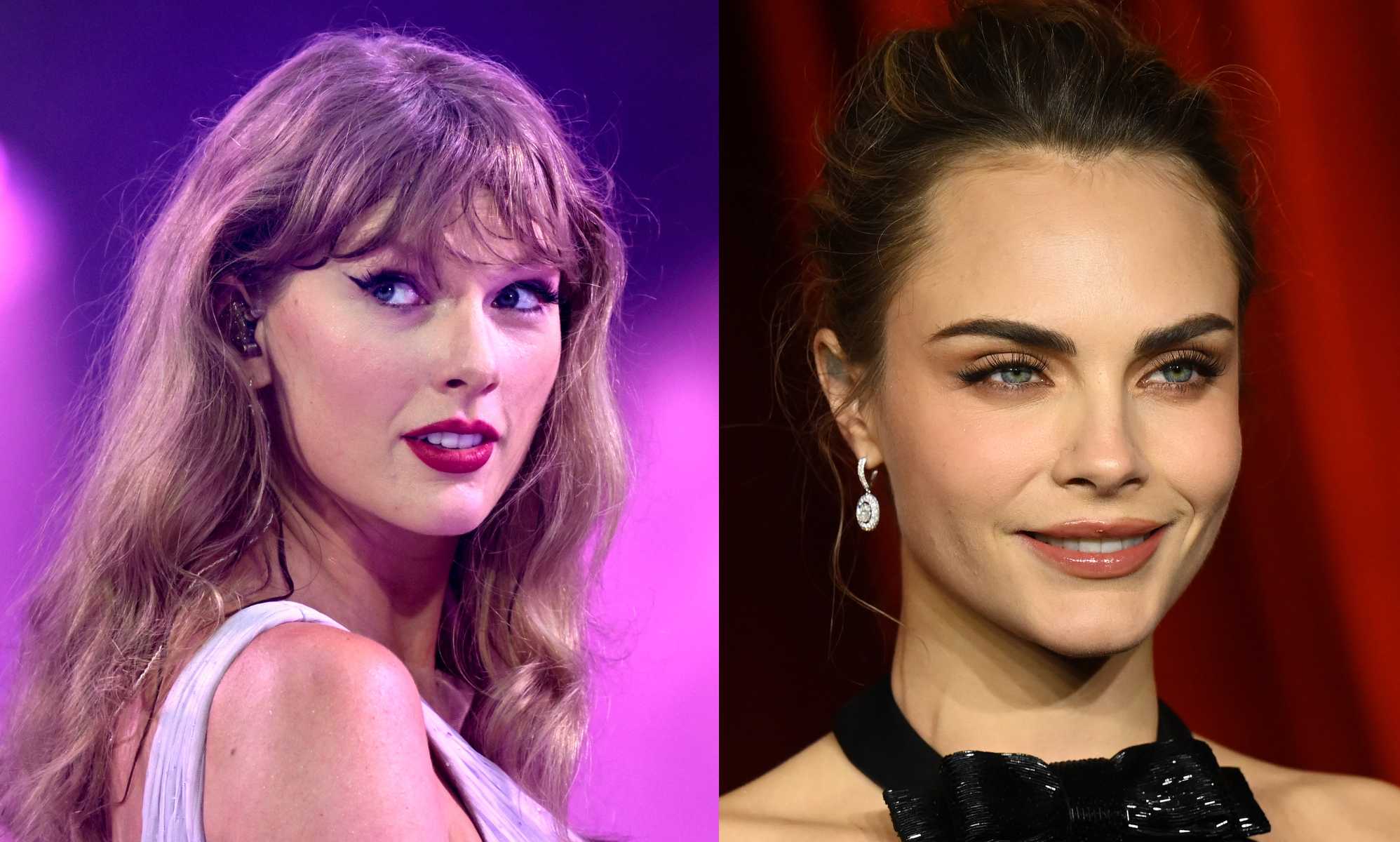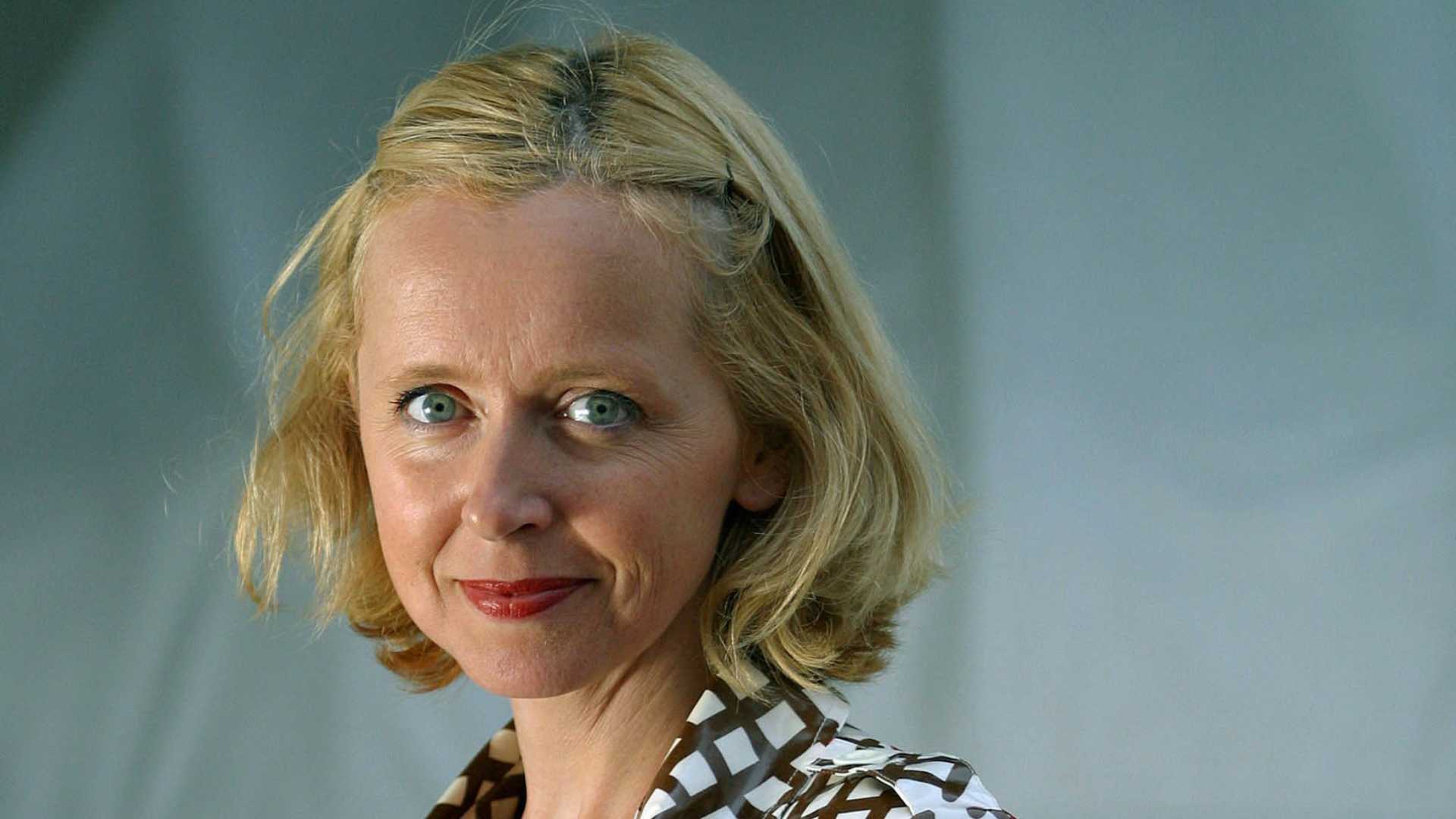This drag queen helped to create a queer utopia in The Sims and, frankly, we want to move there
Left: Sierra Myst. Right: one of the LGBT+ creations in the new gaybourhood (Sims 4)
“I wanted to see what the queerest world would look like!” says SierraxMyst. And the only way to do that is to build it yourself in The Sims 4.
The drag artist and Twitch streamer recently put together a charity event that raised $12,000 for True Colors United, an LGBT+ homelessness charity. Fifteen LGBT+ players of The Sims 4 were involved, collaborating on a world save of Willow Creek – re-building the district with custom homes, amenities and Sims to live there.
“I wanted to do it as a collaboration, so I thought what if I do it as a collaboration with all queer people and what if I turned it into a charity event; it kinda kept building up from there,” they said.
“I wanted all the townies and all the households to live in the builds to be queer or to have a queer storyline to them. It’s not that every single Sim is queer in some way, but everything has that queer line running through. And all the builds were of course designed by all the different Sims creators I collaborated with. In particular the community lots we tried to give a queer focus. So it truly is just the queerest world ever.”
#FreshNewWorld Complete!!✨
➡️ An all LGBTQIA2+ world save for Willow Creek
➡️ Builds and Townies by 15 LGBTQIA2+ Simmers
➡️ $12,000+ Raised for @TrueColorsUnite, a charity focused on LGBTQIA2+ youth homelessness✨Link to download below! pic.twitter.com/ktrjOU81mX
— sierra✨myst (@sierraxmyst) February 17, 2021
Sierra began by demolishing the district and then divided the home and downtown area lots between the LGBT+ creators who were invited to take part. And diversity was a major focus of that.
“It was really important to me that there were non-binary and trans creators, that there were black or indigenous people of colour that were participating, not just those that were the L and the G in the acronym. I really wanted to make sure it was reflective of the whole community and I think that’s shown. Some of the Sims we created are trans, they’re non-binary, they’re asexual, they’re bisexual, they’re lesbian, they’re gay. We’ve got some elderly queer Sims in there. It’s the whole plethora of it all!” they said.
The world save was created over a month and the result is vibrant and full of diversity. What’s more, all the content has been created using the hashtag #freshnewworld meaning it’s available for other Sims players to use too. “It really is a resource if you want to just queer up your Sims world,” says Sierra.
The fundraiser is proof that, 21 years after The Sims was first released and four games into the series, it remains relevant.
Why so popular?
Since the first game in the series, The Sims has captured the attention of all sorts of gamers. Intended as a reflection of real life, the game is an open sandbox that allows players to create homes, towns, and the people who live there.
“People can be whoever they want to be, do whatever they want to do!” says Devon Bumpkin, a streamer involved in the fundraiser. “I enjoy it personally because it’s brought so many amazing things into my life. Friends, community and a career in content creation. I feel so lucky.”
Momo Misfortune, another participant in the event, believes the game allows people to live out their dream lives. “The Sims franchise will never stop being a perfect escape for people. Creating your Sims, putting them in a house you could only dream of having in the real world, becoming a vampire, it really lets you live out any fantasy you can possibly think of,” they said.
That sense of escapism and fantasy is integral to why the game is so popular with the LGBT+ community.
Says Sierra: “For me the idea of particularly queer world building has been really important. I’m able to create and picture and bring to life a world that isn’t necessarily accessible to me or hasn’t been accessible to me.”
It started with a kiss
Since the beginning The Sims has had queer representation, even if it was somewhat by accident. Back in 1999, the game was being shown to the public at the E3 event in Los Angeles and, unexpectedly, included a gay kiss between two female Sims. The development team had debated about whether to include same-sex romance and ultimately decided to leave it out, but due to miscommunication it was written into the code regardless.
Over the course of the E3 event’s live demo, two Sims had fallen in love.
As such, Sims have always been bisexual with the ability to fall in love with any other Sim regardless of gender, but gender preference wasn’t included until the game’s sequel. Furthermore, the developers have gradually developed gender customisation in the game: in The Sims 4 players can choose various attributes like clothing preferences, sitting or standing at the toilet, and whether a Sim can become pregnant. It does, however, still rely on a gender binary.
The game’s openness is largely why it’s so loved by the LGBT+ community, with the ability to create a diverse range of characters. Many LGBT+ gamers were able to use the game to explore their sexuality.
That was certainly the case for Devon Bumpkin. “I think it’s because you can be who you want to be without any limitations,” he says. “I always remembered seeing my male Sims interact romantically when I was young and still unsure of my sexuality. It made me feel seen, when I couldn’t be my true self.”
Momo Misfortune had a similar experience. “Since the very first Sims game it never mattered what gender your Sim was, there was always the option for them to be with the same/multiple gender(s). Of course back in the early 2000s this was a big deal.
“I think because of this The Sims has, in a way, helped a lot of young gamers in the community realise these things about themselves and helped normalise queer relationships for us. I know the game has personally helped me realise my sexuality.”
Improving representation
There is still a way to go, however, in the game’s LGBT+ representation. One major area is the persistent gender binary, with customisation and Sim pronouns tied to male or female. Removing this system wouldn’t just allow non-binary identities to be recognised, it would allow for more freedom.
“I think the next step would be in recognising non-binary identities, they/them pronouns and really allowing us to throw away with that system,” says Sierra. “I think it would point out to a lot of people how the gender binary doesn’t actually really matter, because you can still have all the same choices you had originally.”
Momo believes the same. “Being a trans non-binary person there is not a way for me to feel truly represented in the game without a mod to set my Sim’s pronouns to they/them,” they said. “Changes like this would mean so much to those of us within the community and I am currently on a campaign to tweet at The Sims Twitter everyday until they add the ability to pick our Sims’ pronouns in the game. Change won’t happen by waiting for it to happen. It happens by making our voices heard.”
Though indie competitors (like the forthcoming Paralives) will give The Sims some competition, it remains a unique gaming experience that has allowed LGBT+ players to explore their identity and be recognised.
Seeing the “queerest world ever” is a dream utopia for most of us, but in The Sims it’s finally possible.






